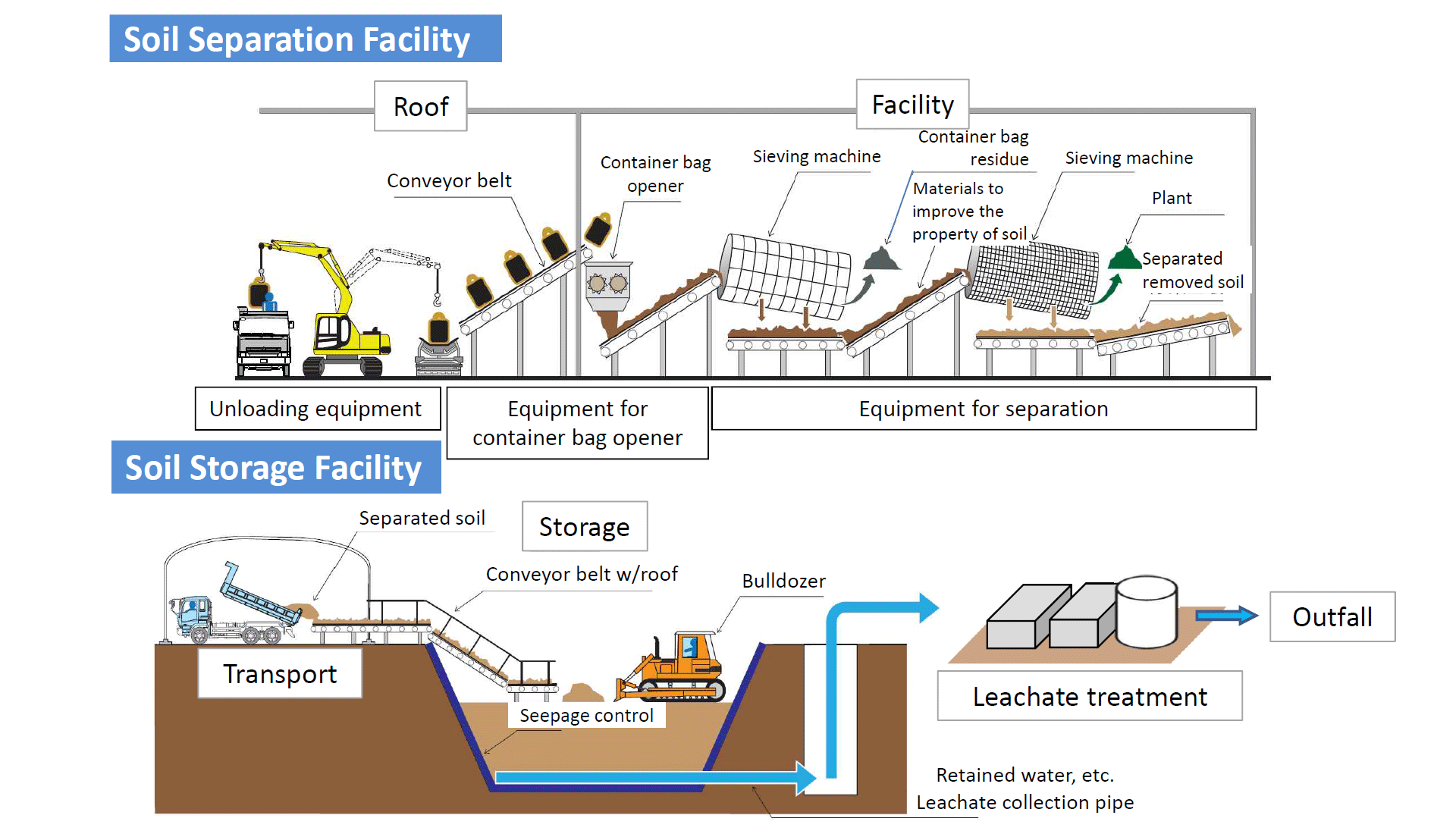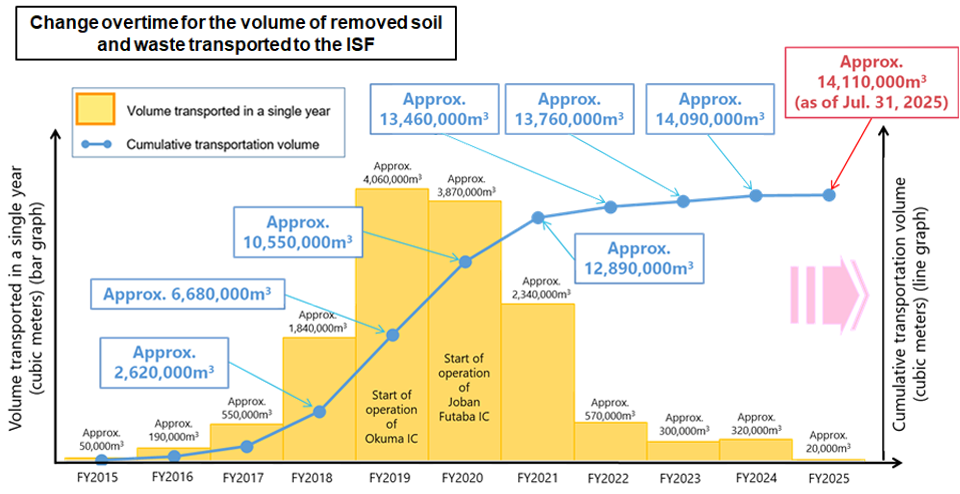HOME >
Interim Storage Facility
Interim Storage Facility
Overview of the Interim Storage Facility
- The Interim Storage Facility (ISF) was built to manage and store removed soil, waste and incinerated ash etc. (>100,000 Bq/kg) arising from decontamination activities in Fukushima Prefecture, safely and in an integrated manner, until final disposal outside Fukushima Prefecture within 30 years from the start of transportation to the Interim Storage Facility.
- The ISF area occupies about 1,600 ha (about the same area as Shibuya City). Okuma Town and Futaba Town accepted the construction of the facility, by making very difficult decisions. MOE will continue to work on the Interim Storage Facility project with a “Safety First” policy.
- Transportation began from the end of FY2014, and as of end of January 2025, a cumulative total of approximately 14.06 million cubic meters of removed soil and waste from Fukushima Prefecture (including Restricted Area) had been transported to the ISF. In FY2024, the transportation of removed soil and waste generated in the SLAR is being be promoted.

Process flow inside the ISF
- Removed soil and waste transported from Temporary Storage Sites and incinerated ash transported from temporary incineration facilities are processed and stored at the ISF.
- In March 2020, the entire process from treatment to storage of removed soil and waste began operation at the Interim Storage Facility.

Soil Separation Facility / Soil Storage Facility


Transport to the ISF
- Transportation of removed soil and waste to the ISF has been implemented from the end of FY2014 and almost all of the removed soil and waste have been transported to the ISF, by Mar. 2022 other than the Restricted Areas.
- Approximately 14.11 million m3 of removed soil and waste (including those in the Restricted Areas) have been transported to the ISF (as of the end of July 2025).

Progress of transportation from each municipality (As of Dec. 2024)

Management and monitoring of transportation
Management of the whole amount of material to be transported
- Objects to be transported from Temporary Storage Sites are all managed centrally by the unit of storage container.
Management of operation of trucks used for transportation
- Obtain real-time information on the location of transport vehicles using the GPS system.
- Provide instructions for time adjustments and route changes depending on the situation.
